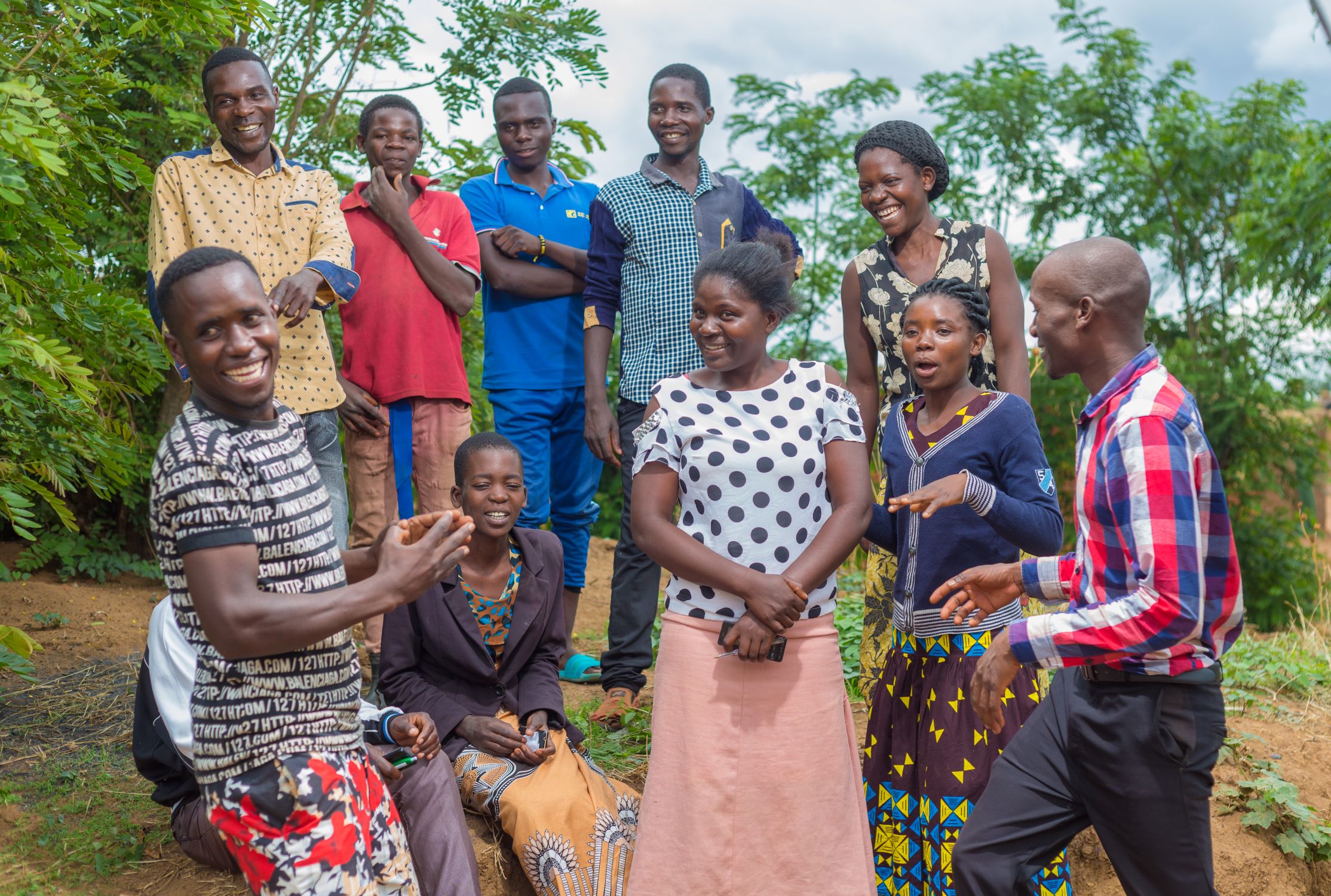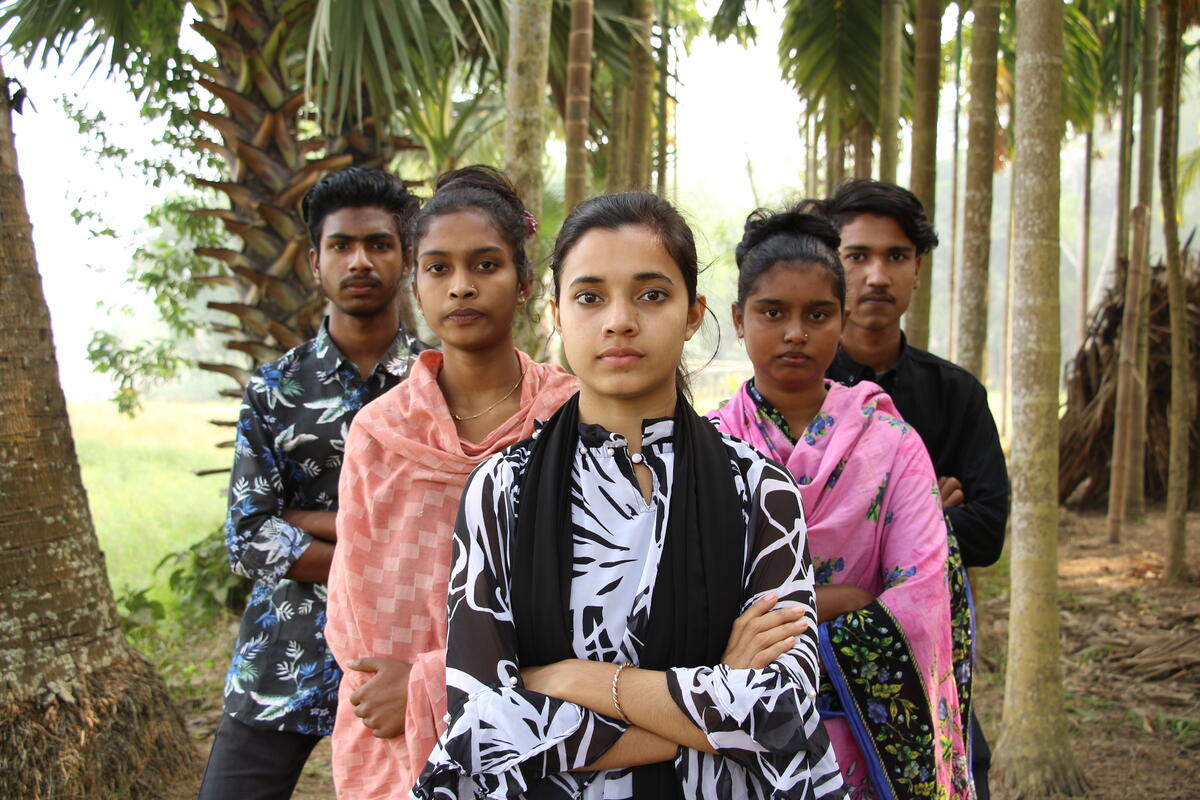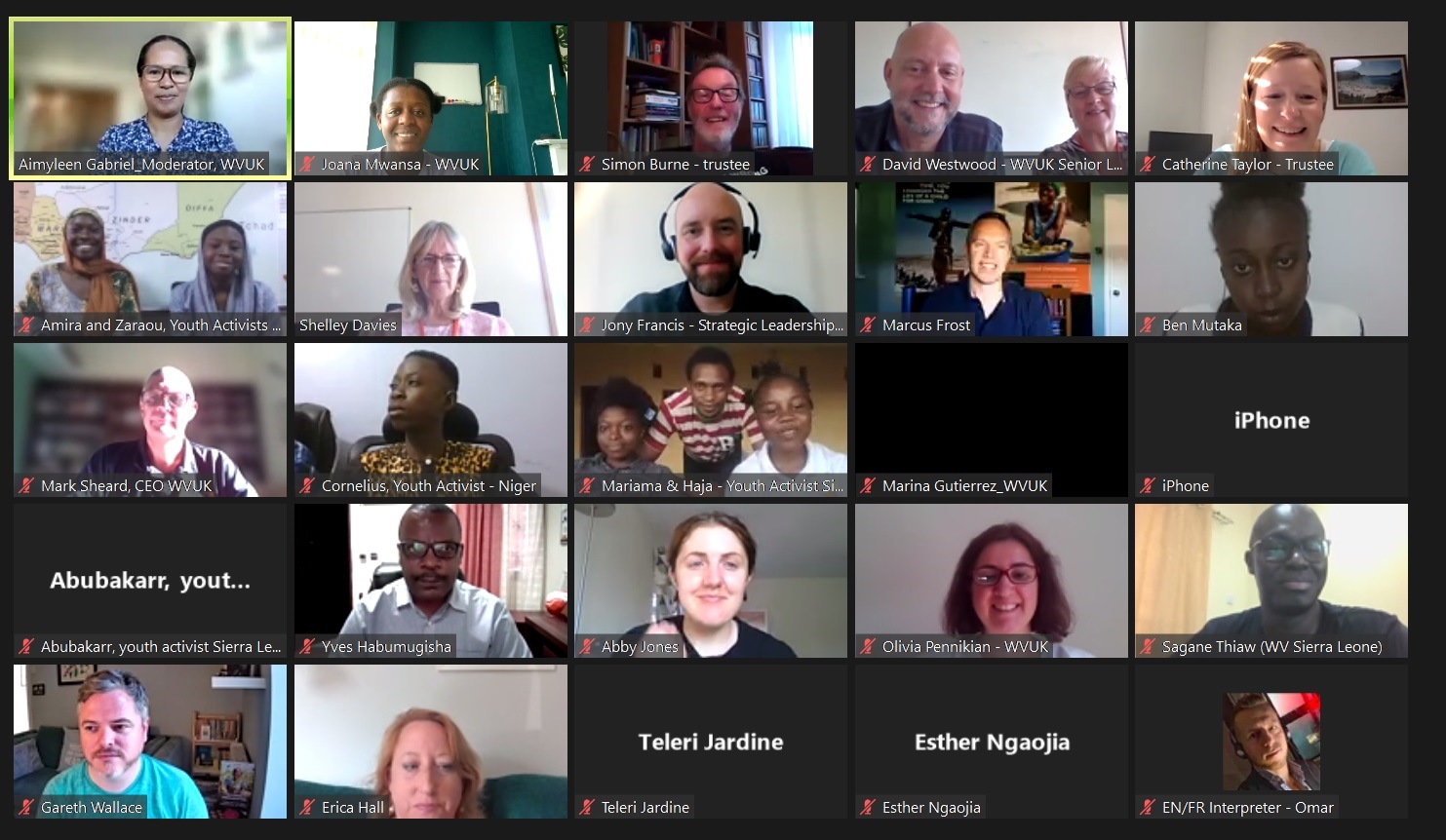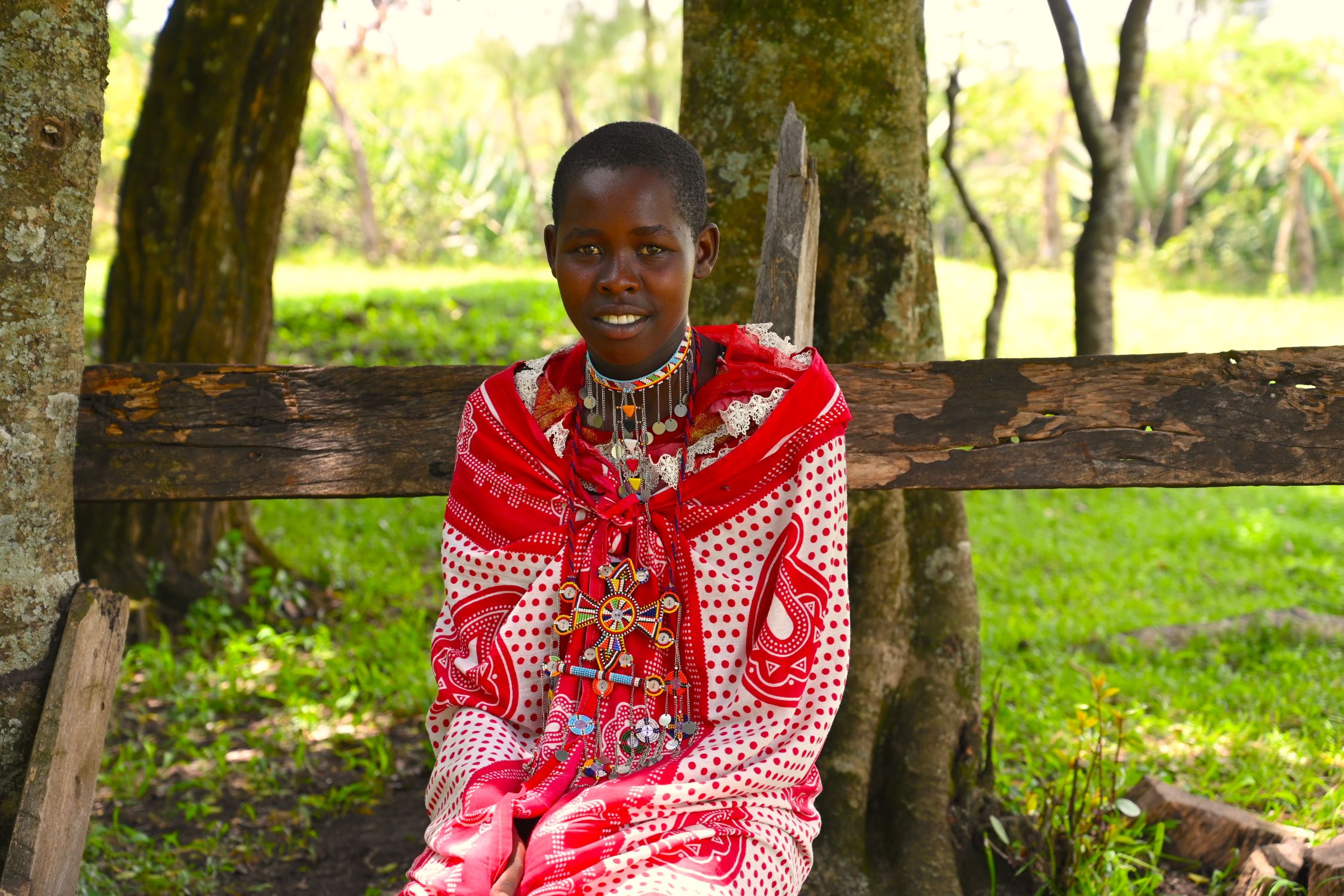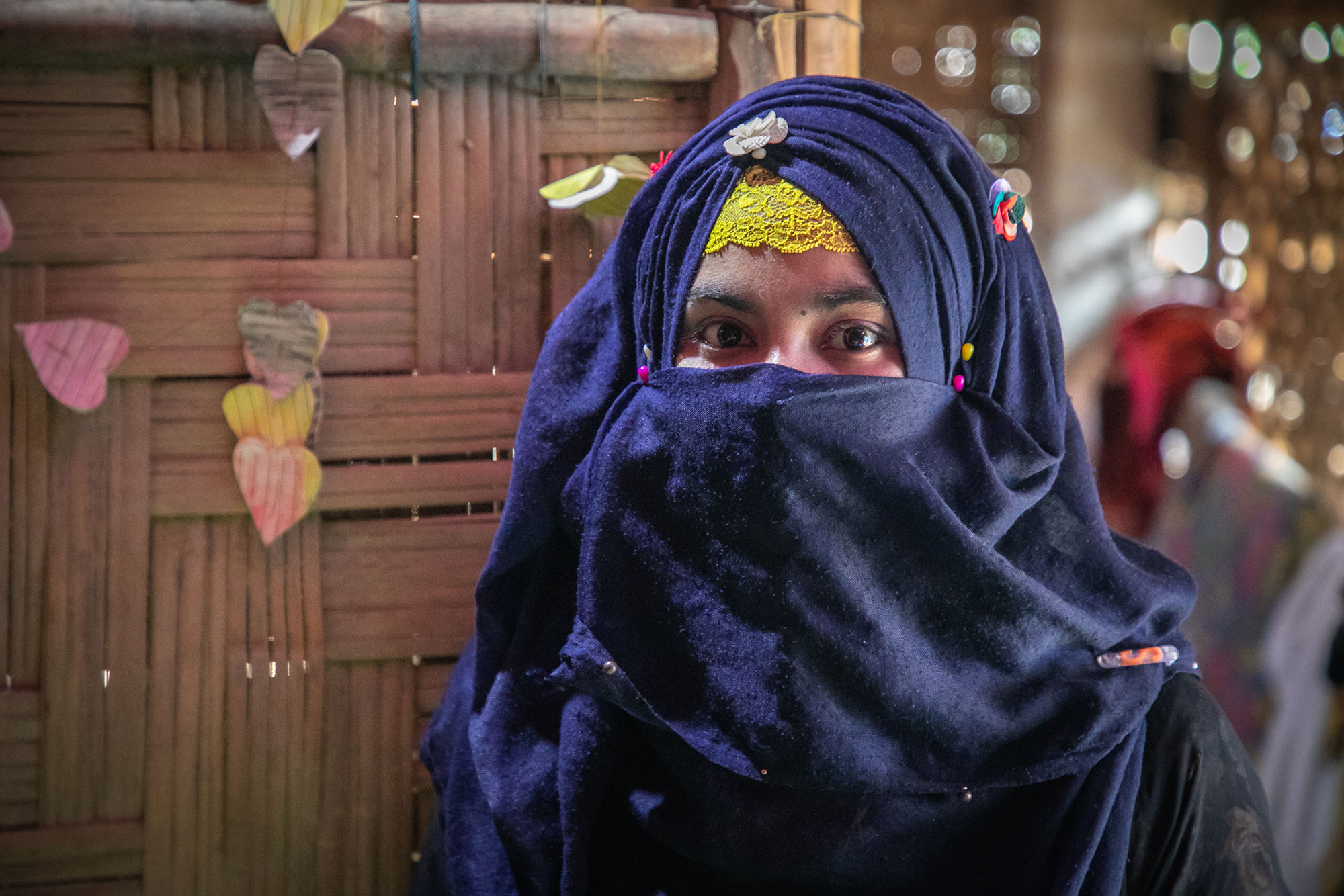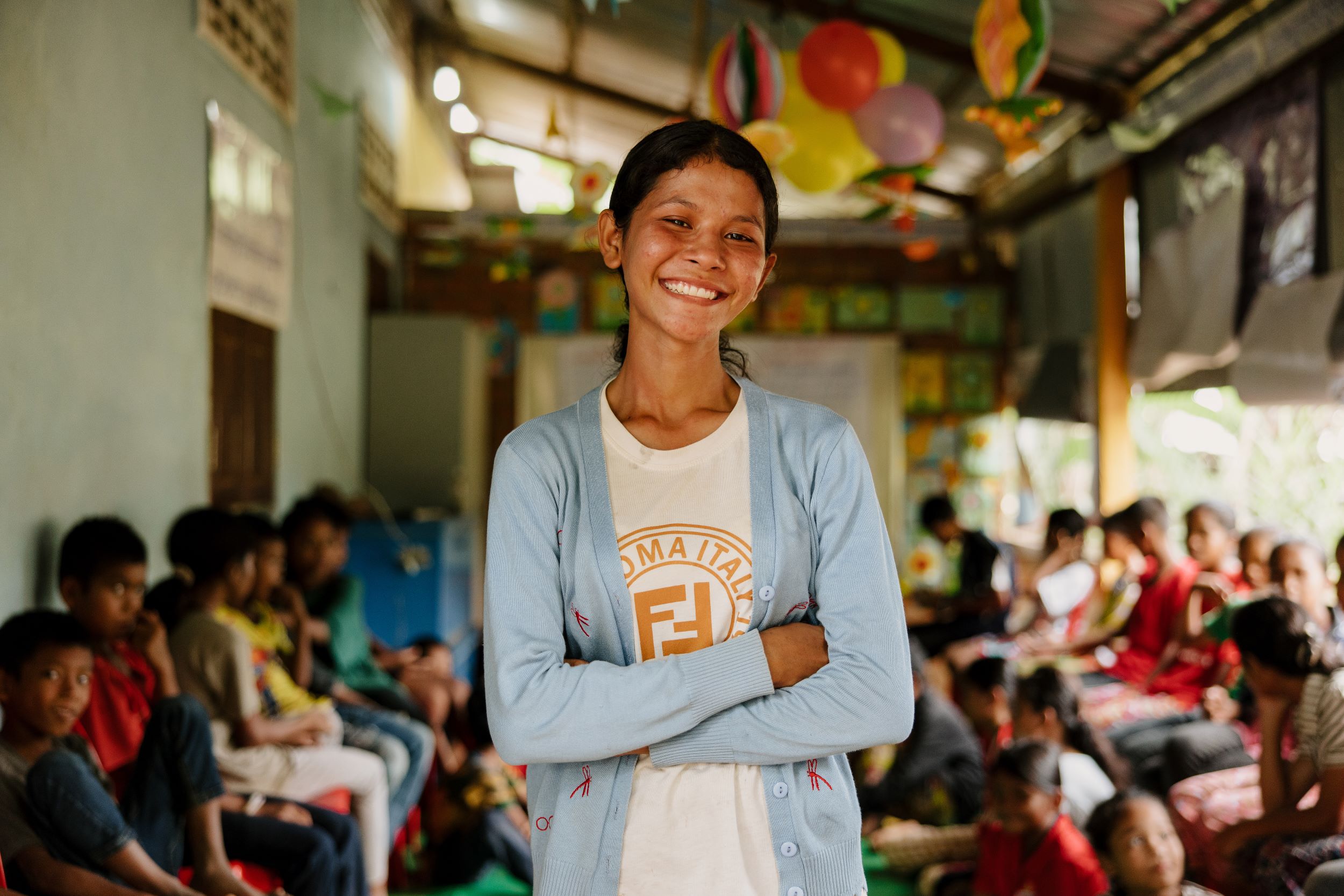
A future of possibility
From outsider to youth club leader
Marked annually on 12 August, International Youth Day is an opportunity to celebrate the 1.2 billion young people who are emerging into adulthood and finding their voices in a fast-changing world.
Although there’s no universal definition of youth, the UN defines it as “those persons aged between the ages of 15 and 24 years”, which amounts to around 16% of the world’s population.
At 18, Phally in Cambodia falls under this definition. Because of child sponsors, she will be the first in her family to finish high school.
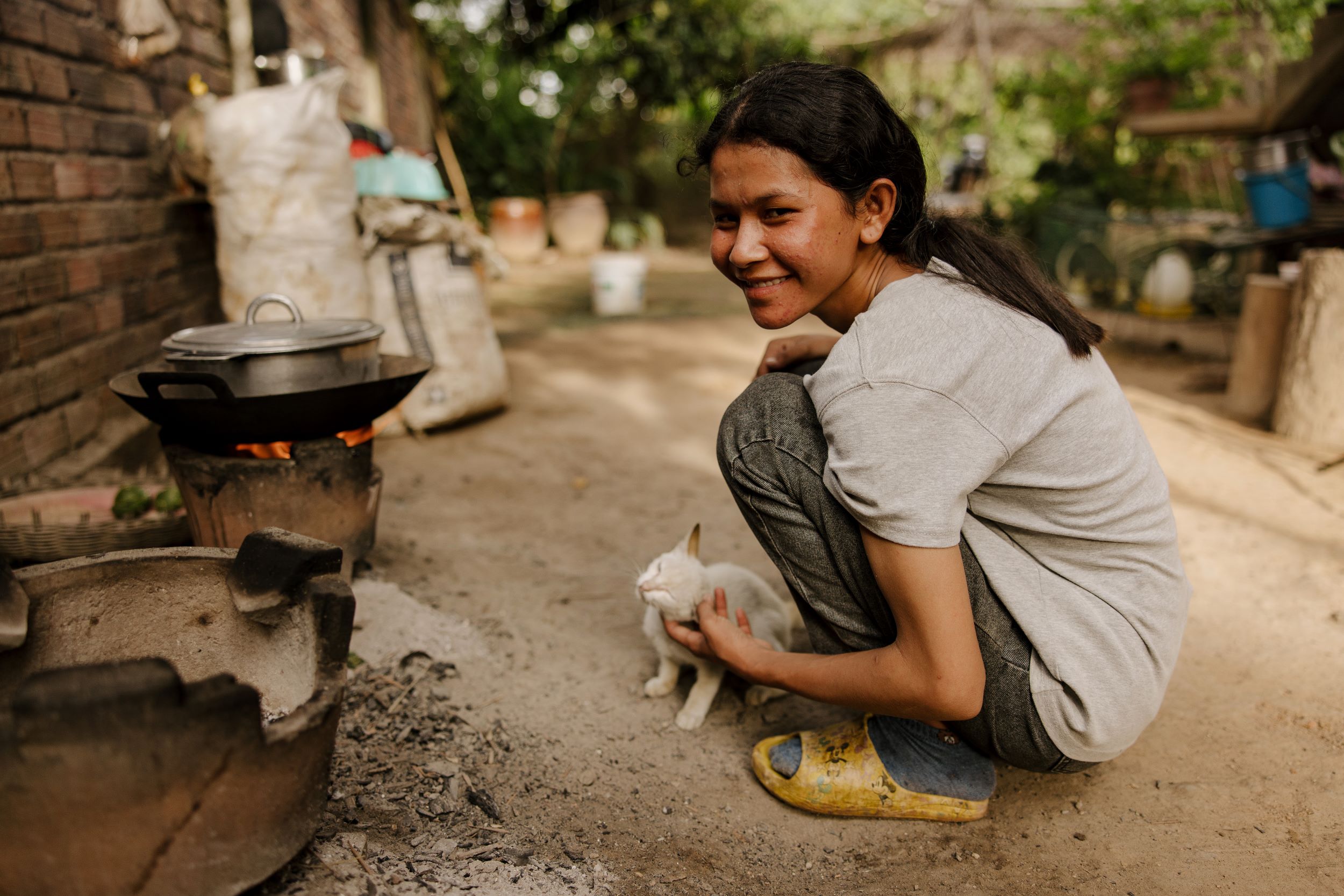
When school is a luxury
Phally has lived with her aunt and cousins since she was two. After her mum died, her father remarried and moved away.
Her aunt, Varouen, had too many mouths to feed and not enough income to meet everyone’s needs. It was a daily struggle to survive.
“When I came to stay with my aunt, her economic situation was not good,” says Phally. “Sometimes I had to go to school and come back without eating.”
Going to school was a luxury that Phally didn’t take for granted. Her cousins and siblings had already dropped out because her aunt couldn’t afford the costs of their education.
“I used to tell my aunt that I also could stop studying, but she encouraged me to keep studying because all the other kids in the family had already stopped going to school. My aunt didn’t have property to give me, so the only way she could help me in the future was to make sure I kept going to school.”
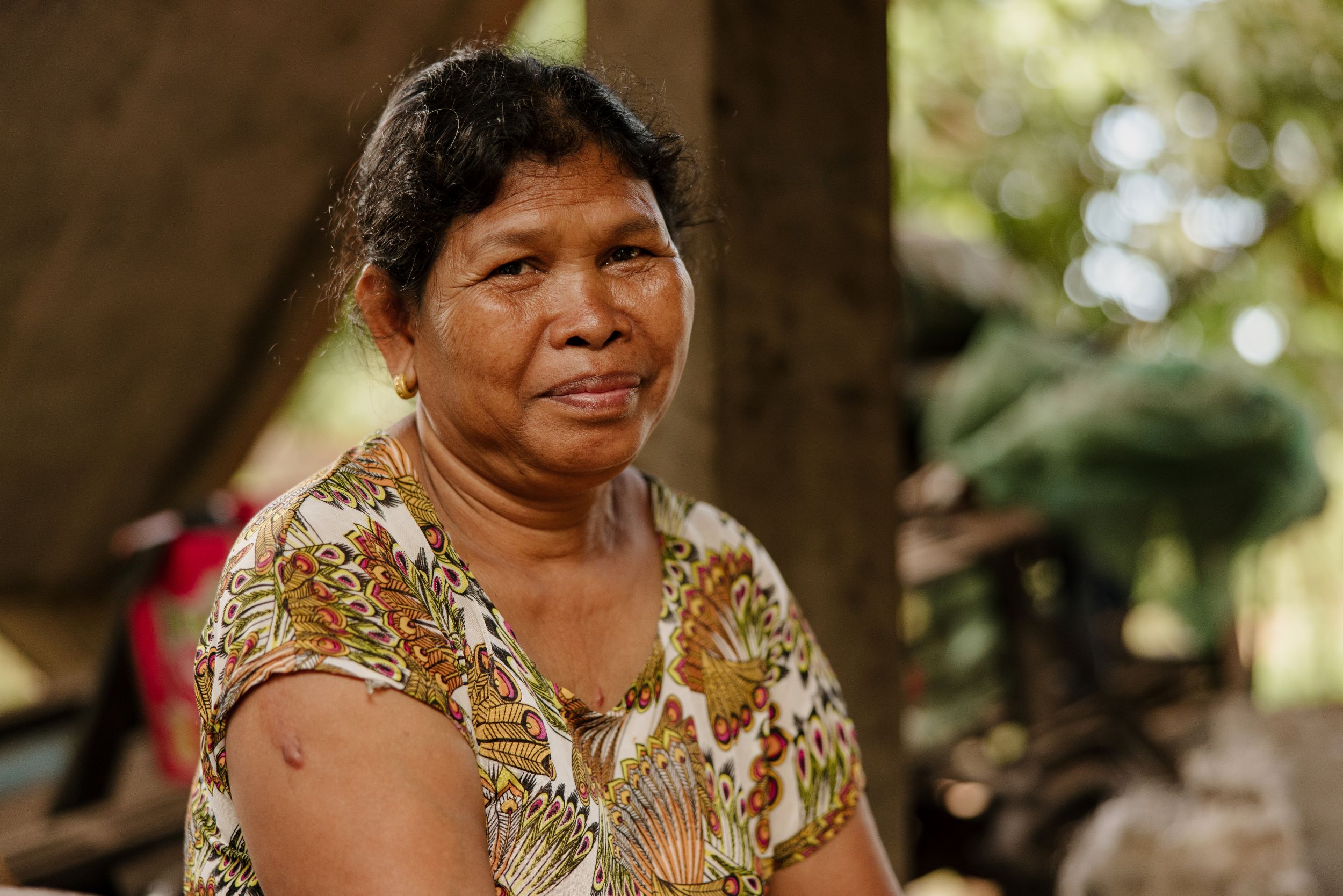
A common story
Phally’s story is not unique. The details may vary slightly, but in rural Cambodia many families struggle to earn enough income to provide for their children. It’s common for parents and caregivers to migrate for work, leaving children in the care of grandparents or relatives.
It’s not easy for the family left behind with extra children to care for, especially when the money the parents hoped to send doesn’t always arrive to help. This can leave their children vulnerable to exploitation, abuse, and neglect.
A World Vision report in 2021 found 37.9% of adolescents reported experiencing physical violence in the previous 12 months.
No friends
Phally’s situation as a child was made harder by complex health issues that have troubled her since she was young.
“People used to look down on me,” she says. “I didn’t have any friends. When I went to play with other children, they would ignore me. Because I came from a poor family, my clothes were not good and sometimes I would even smell, so no one wanted to play with me.”
Youth for Change
Life changed for Phally when she joined the Youth for Change programme in her community, which is made possible by child sponsors. She learned about child protection and safety as well as life skills like self-confidence and public speaking. Eventually, the girl who was once pushed to the fringes of her community became a leader in the youth club.
“Everything has changed a lot. I’m braver than I was before. I can share, I can talk to people,” she says. “There’s been such a big transformation between before and after I was in the youth club. Now I have a lot of friends to play with, I can share what I want to share, and the club leaders told me not to listen to what other people say about me – I have to be myself.”

Phally is passionate about making sure all children in her community are safe and protected.
“I wanted to become a leader so other children know about their rights, and I want them to know about my story and show them that I can do anything. I share with the other members that we all have the same rights, and we can become anything we want.”
Phally has experienced such drastic change in her own life, she can’t help but spread the message as far and wide as possible.
“I also really want to encourage other mothers and caregivers to send their children to the groups, because with this club, they learn about the different forms of violence and how to protect themselves so we can have a safer community.”
Creating a safer community means girls like Phally can reach for a future full of possibility.
“When I’m finished school, I want to see the other children become the next generation of leaders. I want to become a teacher in a secondary school in the rural area. I want to take the experiences that have been really difficult for me and help other children.”
The difference made by Child Sponsorship
For too many children, school is a luxury, but World Vision believes all should have a bright future, full of possibility.
Through Child Sponsorship, we work with communities to help break the cycle of poverty. Both girls and boys are empowered as key decision makers and agents of change. They know their rights and learn to voice them.
Of the 3 million children in World Vision’s sponsorship programme, 95% are going to school. For girls, this means they are less likely to enter child marriage. For all it means hope and opportunity.
Sponsor a girl this International Youth Day and you will be making a long-lasting difference to her future.

